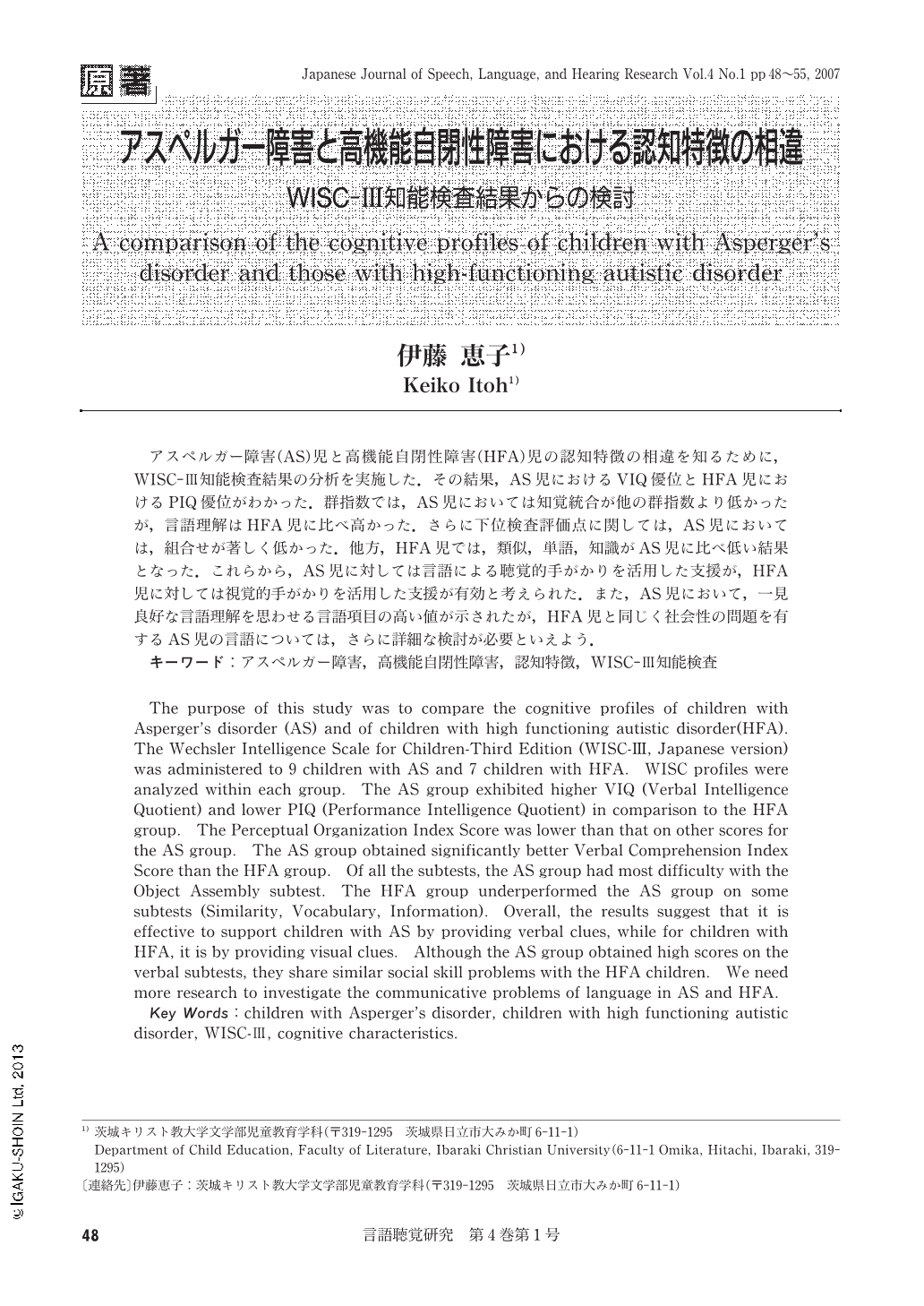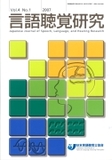Japanese
English
- 有料閲覧
- Abstract 文献概要
- 1ページ目 Look Inside
- 参考文献 Reference
アスペルガー障害(AS)児と高機能自閉性障害(HFA)児の認知特徴の相違を知るために,WISC-Ⅲ知能検査結果の分析を実施した.その結果,AS児におけるVIQ優位とHFA児におけるPIQ優位がわかった.群指数では,AS児においては知覚統合が他の群指数より低かったが,言語理解はHFA児に比べ高かった.さらに下位検査評価点に関しては,AS児においては,組合せが著しく低かった.他方,HFA児では,類似,単語,知識がAS児に比べ低い結果となった.これらから,AS児に対しては言語による聴覚的手がかりを活用した支援が,HFA児に対しては視覚的手がかりを活用した支援が有効と考えられた.また,AS児において,一見良好な言語理解を思わせる言語項目の高い値が示されたが,HFA児と同じく社会性の問題を有するAS児の言語については,さらに詳細な検討が必要といえよう.
The purpose of this study was to compare the cognitive profiles of children with Asperger's disorder (AS) and of children with high functioning autistic disorder(HFA). The Wechsler Intelligence Scale for Children-Third Edition (WISC-Ⅲ, Japanese version) was administered to 9 children with AS and 7 children with HFA. WISC profiles were analyzed within each group. The AS group exhibited higher VIQ (Verbal Intelligence Quotient) and lower PIQ (Performance Intelligence Quotient) in comparison to the HFA group. The Perceptual Organization Index Score was lower than that on other scores for the AS group. The AS group obtained significantly better Verbal Comprehension Index Score than the HFA group. Of all the subtests, the AS group had most difficulty with the Object Assembly subtest. The HFA group underperformed the AS group on some subtests (Similarity, Vocabulary, Information). Overall, the results suggest that it is effective to support children with AS by providing verbal clues, while for children with HFA, it is by providing visual clues. Although the AS group obtained high scores on the verbal subtests, they share similar social skill problems with the HFA children. We need more research to investigate the communicative problems of language in AS and HFA.

Copyright © 2007, Japanese Association of Speech-Language-Hearing Therapists. All rights reserved.


